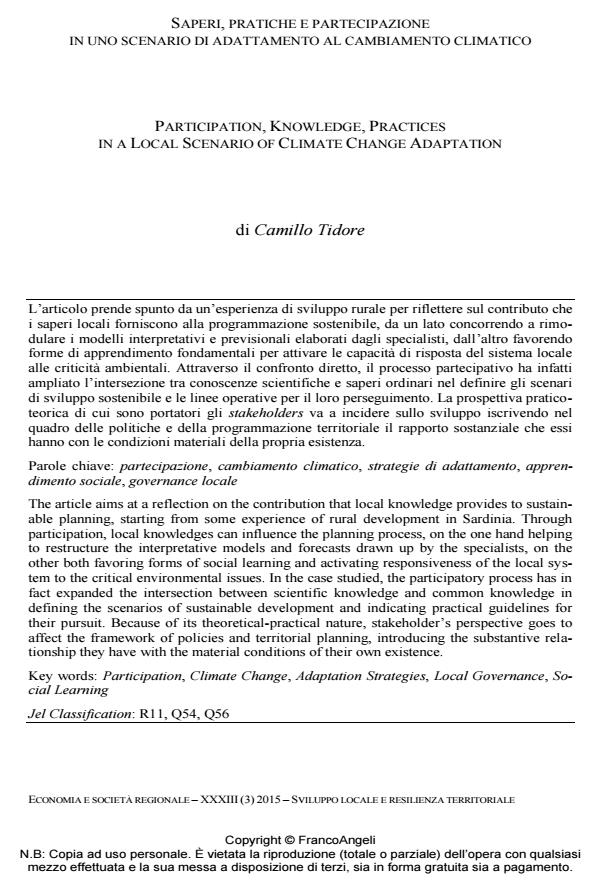Participation, knowledge, practices in a local scenario of climate change adaptation
Journal title ECONOMIA E SOCIETÀ REGIONALE
Author/s Camillo Tidore
Publishing Year 2016 Issue 2015/3
Language Italian Pages 13 P. 45-57 File size 221 KB
DOI 10.3280/ES2015-003003
DOI is like a bar code for intellectual property: to have more infomation
click here
Below, you can see the article first page
If you want to buy this article in PDF format, you can do it, following the instructions to buy download credits

FrancoAngeli is member of Publishers International Linking Association, Inc (PILA), a not-for-profit association which run the CrossRef service enabling links to and from online scholarly content.
The article aims at a reflection on the contribution that local knowledge provides to sustainable planning, starting from some experience of rural development in Sardinia. Through participation, local knowledges can influence the planning process, on the one hand helping to restructure the interpretative models and forecasts drawn up by the specialists, on the other both favoring forms of social learning and activating responsiveness of the local system to the critical environmental issues. In the case studied, the participatory process has in fact expanded the intersection between scientific knowledge and common knowledge in defining the scenarios of sustainable development and indicating practical guidelines for their pursuit. Because of its theoretical-practical nature, stakeholder’s perspective goes to affect the framework of policies and territorial planning, introducing the substantive relationship they have with the material conditions of their own existence.
Keywords: Participation, Climate Change, Adaptation Strategies, Local Governance, Social Learning
Jel codes: R11, Q54, Q56
Camillo Tidore, Saperi, pratiche e partecipazione in uno scenario di adattamento al cambiamento climatico in "ECONOMIA E SOCIETÀ REGIONALE " 3/2015, pp 45-57, DOI: 10.3280/ES2015-003003